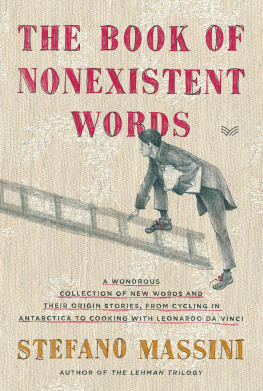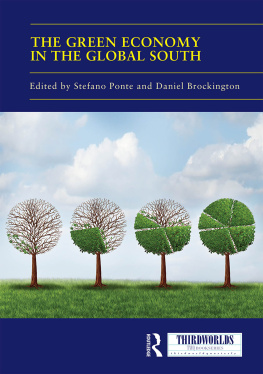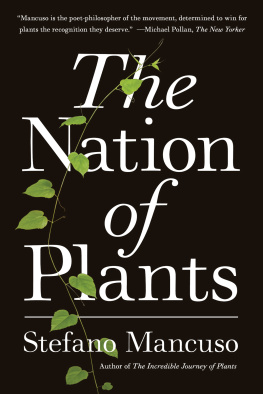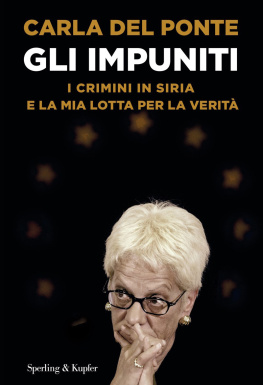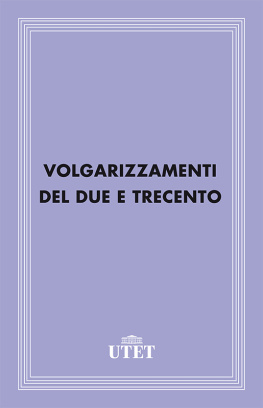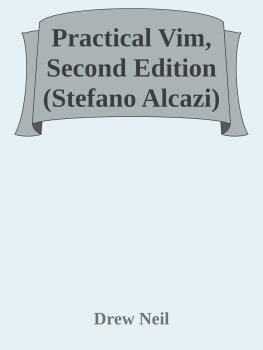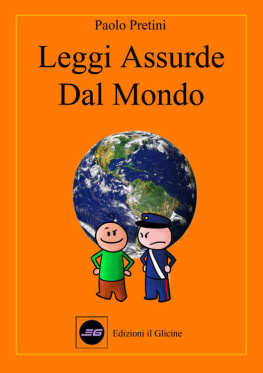Contents
I T REALLY ALL BEGAN WITH ENOUGHNESS, ALSO called Morosinitude. Dont go rushing to the dictionariesyou wont find those words there for the simple reason they dont exist. The same with all the words set out in this book. Ive invented them myself. And not out of choice but out of need. Lets take one step back to see why I decided to coin a word after Francesco Morosini, a seventeenth-century Venetian commander.
So, I was going through one of those moments in lifewhich luckily happenwhen some more responsible part of me takes the initiative, makes its voice heard above the jumble of thoughts, and tries to restore order. They are moments of absolute clarity, though sometimes very painful because they upset the system of reflexes and silences that keep me going. Its when a sudden flood of light illuminates the meaning of some of the relentless battles Ive been fighting for a long time, hellishly difficult but still deeply necessary, so that my very identity somehow felt tied to them. Well return to this discussion later, but for the moment, suffice it to say that I was asking myself the crucial question: is it really worth it? And a shiver ran down my spine.
Not only because I was suddenly aware of the complete stupidity of my battle, which I had gradually raised from a paltry guerrilla attack to the status of a crusade. There was no doubt Id been fooling myself for a long while; the feeling of being on the barricades had filled me with a strange fortifying relish, and yet by drinking that elixir I had avoided asking myself the other real question about the battle: what is it actually all about? Even more disturbing, howeverif that were possiblewas something less obvious, which I had to explore at all costs. It was like when a detective, even after he has solved his case, glimpses the shadow of a hidden accomplice who had played some key role. So, who had fought against my clarity? Who had added to that enormous waste of energy?
The answer startled me: it was my language. Or rather, that baggage of words we habitually use to describe feelings and states of mind, wrongly thinking that they cover the whole gamut of our emotional universe and that, if anything, it is we who dont know how to use them. But my vocabulary was anything but extraneous to the crime of which I was accusing myself: this was the very reason why I had thrown myself for years into relentless conflict. Just think about it: theres no such word as enoughness. Theres not a single word that describes the virtue of saying enough in the face of pointless battles. On the other hand there are plenty of words that praise the perseverance of the warrior: constancy, tenacity, determination, obstinacy... Indeed, it seems theres an unwritten rule that deters me from quitting and, to force me to carry on, lacks the words that justify surrender.
Its a fact that language is never neutral; it implies a system of values, and it applies them tyrannically, choosing what to define and what to leave unnamed. Each language, like a piece of clothing made to measure, reproduces what a civilization believes to be right or wrong. Starting with states of mindindeed, perhaps these above all.
For example, the Utku, a small Inuit population (well come across them again later), dont have any name for anger. They fear rage more than anything else and therefore stop it from appearing by not dignifying it with a word. But how many states of mind are not considered in a language, and vice versa, how many are described in curious ways? The Koreans use the noun han to indicate a particular gloomy kind of hope, when the prospect of a better future clashes with resigned acceptance of a lousy present. I defy anyone not to have experienced it. And yet we dont have an exact word to express it because our morality (first classical, then Christian) always pitches us into the future, not allowing us any hesitation, as if it were a danger to be warded off. The German language too has a magnificent word, Torschlupanik, to describe the fear of missing crucial moments in our lives as time slips through our hands. Russian then amazes us with such a simple sound, toska, to describe a complex state of mind, the sadness that creeps in for no apparent reason and afflicts us until it becomes almost a physical pain. The Japanese word shoganai condenses into a single noun the need to carry on without looking back, accepting that everything may have its meaning but doesnt necessarily fall under our control. A remarkable synthesis, I would suggest. It can be bettered only by Indian wisdom, which has a single wordvirahato express the sensation of someone who, at a moment of separation or abandonment, recognizes only then the full strength of their own feeling. I could go on.
And here was where a new state of mind appeared, a mixture of annoyance and surprise that my language was not a palette of colors I could use to paint all things. No indeed. It was some kind of cage in which I didnt want to stay. But then, in the end, arent words supposed to be tools created to solve problems? Theres always an old trick behind every word: we name things in order to be understood; we describe concepts and situations to avoid misunderstandings within our tribe. Because no one ever talks only for themselves: words are a bridge between us and others, built over the river of things. So the point was to restart the wondrous mechanism that has fed our dictionaries from time immemorial. If a word was missing, I would create one. Or at least I would suggest one. But how?
To begin with, a name had to be given to my withdrawal from a pointless conflict. It was then that I thought about the words taken from characters from the past: we have the word Stakhanovite because the Russian miner Alexey G. Stakhanov beat all records for dedication to work, digging out several hundred tons of coal in a single shift. In contrast, an Oblomovist is someone who cant move from his couch, in homage to that wonderful hero Ilya Ilyich Oblomov in the story by Ivan Goncharov. He sought refuge in the arms of his sofa after having escaped from the relentless suffering of his office. And then, still in the workplace, theres the word Luddite, with which we brand anyone who fights against the spread of technology at work. It is said that Ned Ludd was the first English worker to vent his anger against a steam-powered loom. These three words were created from three stories, three portraits, three people: Stakhanov, Oblomov, and Ludd. If we have any doubts about the real origins of the words we use, we can be cheered by these nouns directly derived from specific names: each word hides a story, and its discovery takes us to the root of its meaning. By accepting this method alone, what an infinite catalogue of stories opens up before us!
In the mid-nineteenth century, a popular French novelist invented a successful new saga, published in installments. Pierre Alexis Ponson du Terrail was a slapdash, hack writer, but that didnt prevent him from achieving great fame with the bungled adventures of a cutthroat thief who then has a change of heart. We wont find Terrails works in bookstores today, yet the French adjective rocambolesque, inspired by his character Rocambole, has crept into many languages to describe daring adventures. Similarly, we are constantly, and unknowingly, raising the ghost of King Louis XVs minister of finance, who at the end of the eighteenth century taxed anything suggesting a minimum of wealth, from furnishings to the facades of buildings. France sank into a kind of depression from fiscal vengeance, and the surname of the infamous politician came to indicate everything that is stark, plain, and unadorned. His name was tienne de Silhouette. Then, during the same period, a certain Philibert Commerson, a respected naturalist, made a journey around the world to catalogue flora and fauna in the Southern Hemisphere. The head of the expedition was the famous navigator Louis Antoine de Bougainville, from whom the plant we all know takes its name. But more curiously, this was not the only species to be baptized on that journey. On his return, Commerson fell madly in love with an attractive woman to whom he dedicated the most beautiful of all flowers, showing her an exotic example collected from the other side of the world. The woman was Hortense Barr, and it was after her that the hortensia, or hydrangea, was named. In the same way, the Duke of Wellington became associated with the famous boot and an unspecified Dame Jeanne gave her name to the glass wine vessel known as the demijohn. Which just goes to show how what we say is often built on stories crystallized over the years into the remnants of a sound.

